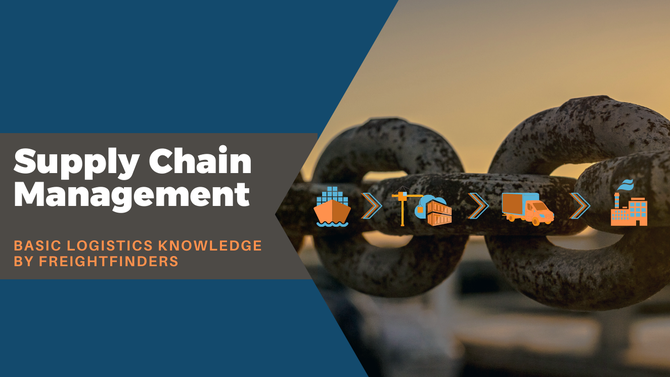When you're dealing with logistics, there's no way around Supply Chain Management. But what is actually the meaning behind this term? Supply Chain Management is implementing the value chain from A to Z. But what are the steps required?
Find cheap transports with our free freight search engine and book your route today!
What Are the Tasks of SCM?
The tasks of SCM are very diverse, as various areas of the value chain are integrated and all of it has to be planned. Information-, money- and goods-flows must be guaranteed beyond one’s own company borders. Supply Chain Management tasks include:
- Analysis of customer and market data
- Optimization of resources and cost reduction through the entire value chain
- Process planning in all areas
What Are the Goals of Supply Chain Management?
In Supply Chain Management, companies set themselves the goal of optimizing all processes and supplying customers and markets with economically successful results. In the end, therefore, the customer benefit, as well as the cost-effectiveness, must become more and more efficient. Cost efficiency and demand are key issues. Especially with the product life cycles becoming shorter and the simultaneous customer expectations increasing, the value chain and its processes have to be planned and controlled cross-company.
Which Sub-Areas Can SCM be divided into?
Good network structures and optimized time management are the be-all and end-all of good Supply Chain Management, as many sub-areas need to be coordinated in SCM. In order to give you an insight into the highly complex processes, we have compiled a very simplified example here!
This Is what your Supply Chain Could Look like!
Let’s pretend you are a company that produces and sells bicycles. So what SCM and logistics processes must take place in order for the end customer to buy your bike?
Procurement Logistics
The first step of Supply Chain Management is usually the procurement of raw materials. If you do not produce them yourself, you will need one or more solid partners to procure saddles, tyres, chains, etc. for you. The goods are stored in a raw material warehouse. In advance, therefore, you have to decide on suppliers in the long term, on materials in the medium term and on the use of personnel in the short term.
Production Logistics
The in-house logistics/production logistics of the Supply Chain Management now ensures that the raw materials come to the various production sites where the intermediates are manufactured. In this step, e.g. the rack is connected to the frame. This step is repeated until a finished product is created. This then comes into a final product warehouse. Therefore, the long-term planning includes, for example the long-term locations where production is to be carried out. In the medium term, it is necessary to decide on the production programme, e.g. how many bicycles you want to produce and how they are distributed to the production facilities. In the short term, the SCM decides on the schedule, which allocates, for example, which machine takes over which production orders.
Distribution Logistics
The next step in Supply Chain Management is distribution logistics. This is about being able to deliver your product to the customer cheaply and quickly. The distribution network must therefore be planned for the long term in Supply Chain Management. The medium-term planning is about the distribution of your bicycles among the customers. The short-term step is the route planning.
Sales Logistics
Supply Chain Management sales logistics are all about selling your bicycles. This means that the customer's wish plays a major role in long-term planning. This is where it has to be decided which product range will best reach the customer. In this step of the SCM, the most important point is long-, medium- and short-term sales planning. So, the bike is now sold. But this was not the last step of your Supply Chain Management.
Disposal Logistics
The last step of Supply Chain Management is waste disposal logistics. This is not just about the disposing of the waste generated during production. It is also a question of whether remains can perhaps be reused.
With our Major Customer Portal, you can profit from cheap prices and reliable partners for your recurring transports.
